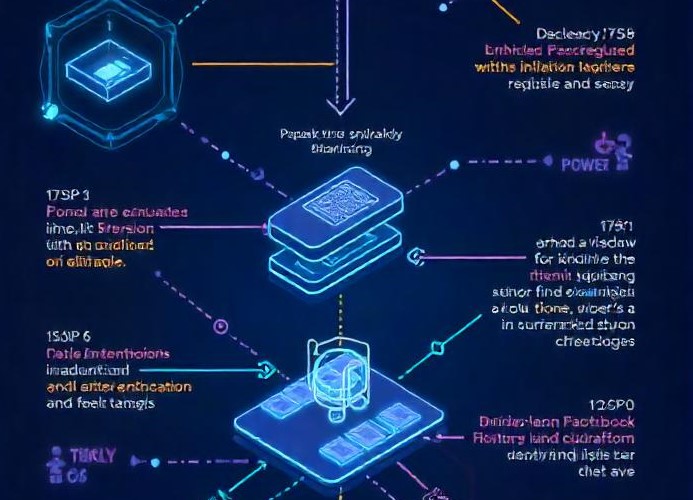Introduction
Table of Contents
ToggleArtificial intelligence (AI) has revolutionized the way we interact with technology, enabling a myriad of applications across various fields. One of the most exciting developments in this domain is the emergence of advanced AI models, such as Claude AI. Named presumably after Claude Shannon, the father of information theory, Claude AI represents a significant leap forward in natural language processing (NLP) and conversational AI. This article aims to provide a comprehensive overview of Claude AI, including its architecture, capabilities, applications, ethical considerations, and future prospects.

What is Claude AI?
Claude AI is an advanced conversational AI model developed by Anthropic, a company focused on AI safety and research. It is designed to understand and generate human-like text, making it capable of engaging in meaningful conversations, answering questions, and providing information on a wide range of topics. Claude AI is built on cutting-edge machine learning techniques, including deep learning and reinforcement learning, which enable it to learn from vast amounts of data and improve its performance over time.
Key Features of Claude AI
- Natural Language Understanding (NLU): Claude AI excels in understanding the nuances of human language, including context, tone, and intent. This allows it to respond appropriately to user queries and engage in more natural conversations.
- Contextual Awareness: The model is capable of maintaining context over extended interactions, enabling it to provide coherent responses that are relevant to the ongoing conversation.
- Multi-Turn Dialogue: Claude AI can handle multi-turn dialogues, meaning it can remember previous exchanges within a conversation and use that information to inform its responses.
- Versatile Applications: Claude AI can be applied across various domains, including customer support, content generation, education, and entertainment, making it a versatile tool for businesses and individuals alike.
- Safety and Alignment: One of the key focuses of Anthropic in developing Claude AI is ensuring that the model aligns with human values and operates safely. This involves rigorous testing and evaluation to minimize harmful outputs.

The Architecture of Claude AI
Claude AI is built on a transformer architecture, which is the foundation of many state-of-the-art NLP models. The transformer architecture enables the model to process and generate text efficiently by utilizing mechanisms such as self-attention and feed-forward neural networks.
Transformer Architecture
- Self-Attention Mechanism: This mechanism allows the model to weigh the importance of different words in a sentence when generating a response. By focusing on relevant words and their relationships, Claude AI can produce more meaningful and contextually appropriate responses.
- Feed-Forward Neural Networks: These networks process the information obtained from the self-attention mechanism. They consist of layers of neurons that transform the input data into output predictions, enabling the model to generate coherent text.
- Positional Encoding: Since transformers do not inherently understand the order of words, positional encoding is used to provide information about the position of each word in a sentence. This helps Claude AI maintain the correct sequence when generating text.
- Layer Normalization: This technique helps stabilize and improve the training process by normalizing the output of each layer. It ensures that the model learns effectively and reduces the risk of overfitting.
Training Process
Claude AI undergoes a rigorous training process that involves two main phases: pre-training and fine-tuning.
- Pre-Training: During this phase, Claude AI is trained on a vast dataset containing diverse text samples from books, articles, websites, and other written sources. The model learns to predict the next word in a sentence based on the context provided by previous words. This unsupervised learning approach enables it to develop a broad understanding of language.
- Fine-Tuning: After pre-training, Claude AI is fine-tuned on specific tasks or datasets to enhance its performance in particular applications. This phase often involves supervised learning, where the model is trained on labeled data to improve its accuracy and relevance in generating responses.

Applications of Claude AI
Claude AI has a wide range of applications across various sectors, demonstrating its versatility and effectiveness. Some of the key areas where Claude AI is making an impact include:
1. Customer Support
Many companies are leveraging Claude AI to enhance their customer support services. The model can handle common inquiries, provide information about products or services, and assist customers in troubleshooting issues. By automating these interactions, businesses can improve response times and reduce the workload on human agents.
2. Content Generation
Claude AI can generate high-quality written content, making it a valuable tool for content creators, marketers, and businesses. It can assist in drafting articles, blog posts, social media updates, and marketing materials. Its ability to understand context and produce coherent text enables it to create engaging content tailored to specific audiences.
3. Education and E-Learning
In the education sector, Claude AI can serve as a virtual tutor, providing personalized assistance to students. It can answer questions, explain complex concepts, and offer additional resources for learning. This interactive approach can enhance the educational experience and support diverse learning styles.
4. Entertainment and Gaming
Claude AI can be integrated into video games and interactive storytelling experiences, creating dynamic characters that respond to player actions and dialogue choices. This enhances immersion and engagement, making games more enjoyable and interactive.
5. Research and Data Analysis
Researchers and analysts can utilize Claude AI to process large volumes of text data, summarize findings, and extract key insights. Its ability to analyze and generate reports can streamline research processes and improve efficiency in data-driven decision-making.
Ethical Considerations
As with any advanced AI technology, the development and deployment of Claude AI raise important ethical considerations. Ensuring responsible use and minimizing potential harm is crucial for the long-term success of AI systems. Some key ethical considerations include:
1. Bias and Fairness
AI models, including Claude AI, can inadvertently learn and perpetuate biases present in the training data. This can lead to biased outputs that reinforce stereotypes or discrimination. It is essential for developers to implement strategies for identifying and mitigating bias during the training and evaluation processes.
2. Misinformation and Disinformation
Claude AI’s ability to generate text raises concerns about the potential for spreading misinformation or disinformation. Ensuring that the model produces accurate and reliable information is critical, especially in sensitive areas such as healthcare, finance, and politics.
3. Privacy and Data Security
The use of AI models often involves processing personal data. Ensuring the privacy and security of user data is paramount. Developers must implement robust data protection measures and comply with relevant regulations to safeguard user information.
4. Accountability and Transparency
As AI systems become more autonomous, questions of accountability arise. It is crucial to establish clear guidelines for the responsible use of AI and ensure transparency in the decision-making processes of AI systems. Users should be informed about how AI models operate and the potential limitations of their outputs.
5. Human-AI Collaboration
The goal of AI should be to augment human capabilities rather than replace them. Promoting collaboration between humans and AI systems can lead to better outcomes and ensure that human judgment remains central in decision-making processes.
Future Prospects of Claude AI
The future of Claude AI and similar AI models is promising, with several potential developments on the horizon:
1. Improved Natural Language Understanding
As research in NLP continues to advance, future iterations of Claude AI may exhibit even greater proficiency in understanding complex language structures, idiomatic expressions, and cultural nuances. This will enhance its ability to engage in more meaningful and context-aware conversations.
2. Enhanced Customization
Future versions of Claude AI may allow for greater customization by users, enabling them to tailor the model’s behavior and personality to suit specific needs. This could include adjusting the tone, style, and level of formality in responses.
3. Integration with Other Technologies
Claude AI may increasingly integrate with other technologies, such as augmented reality (AR) and virtual reality (VR), to create immersive experiences. This could revolutionize fields such as education, training, and entertainment.
4. Expansion into New Domains
As AI models become more versatile, we can expect Claude AI to expand its applications into new domains, such as healthcare diagnostics, legal assistance, and scientific research. Its ability to process and analyze vast amounts of information will be invaluable in these areas.
5. Ongoing Ethical Development
The future of Claude AI will likely involve ongoing discussions about ethics, safety, and alignment. Researchers and developers will continue to prioritize the responsible development of AI technologies, ensuring that they align with human values and societal needs.
Conclusion
Claude AI represents a significant advancement in the field of artificial intelligence, showcasing the potential of conversational AI to transform various industries and enhance human-computer interactions. Its capabilities in natural language understanding, contextual awareness, and versatility make it a valuable tool for businesses, educators, and individuals alike.
As AI technology continues to evolve, it is crucial to address the ethical considerations and challenges associated with its deployment. By prioritizing safety, transparency, and fairness, we can harness the power of Claude AI to create positive impacts across society. The future of AI holds immense promise, and Claude AI is poised to play a pivotal role in shaping that future. Through responsible development and collaboration, we can unlock the full potential of AI while ensuring it serves the best interests of humanity.


1 thought on “Claude AI: A Comprehensive Overview”